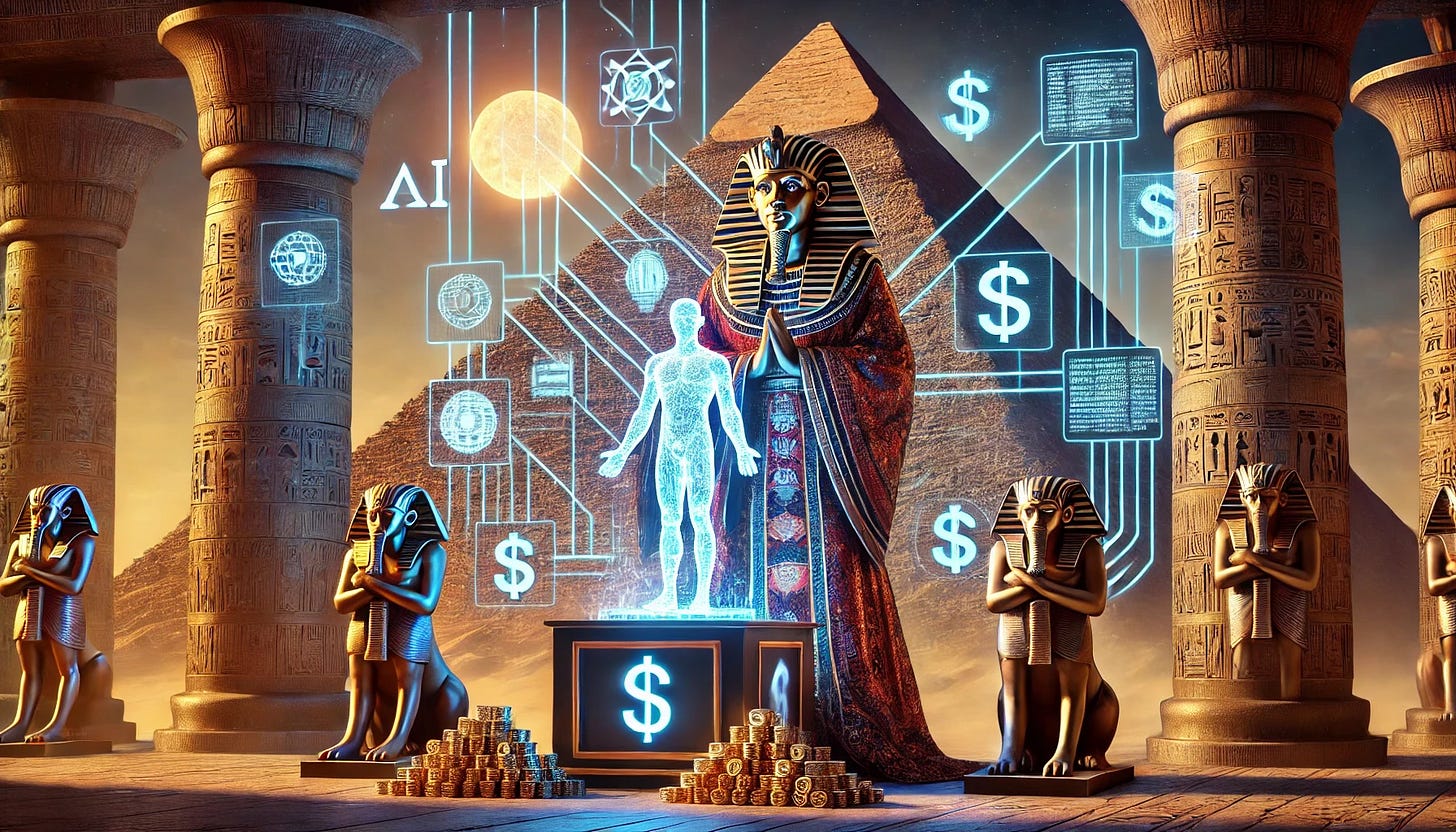The High Priests of AI
Who Holds the Reins of Power?
I have talked about the general issues surrounding the ethical implications of AI in content production in previous articles in this series. I wrote that biases exist and will inevitably affect the creation of a given work of art is unavoidable because in a sensible society we have to have rules and guidelines to protect users of this technology from bad actors. Sadly, there are an awful lot of them. Many of whom wish to steal your money, your identity, and even loved ones.
However, there is a deep discussion that must be had to determine how not only regular laws are made relevant and implemented in this brave new world. Also, there are many things which, while not illegal, are unsavoury and possibly damaging to impressionable minds. The question at that point becomes: who decides what is unsavoury and damaging?
Elected representatives, like most of their constituents, and even perhaps the creators of AI platforms themselves, have very little idea of how the technology is actually going to be used in the future on a daily basis. It is impossible to assess how such incredibly capable technology will be deployed.
In the last couple of years we have seen the work of many early adopters and hype merchants. On the whole, their output, while clever in some cases, has proved to be really quite dull. There seems to be a real lack of human spirit in AI creation. Everything is too on the nose and lacks the edge of quirkiness that only humans have. Replacing humans as humans may not be doable but replacing their routine workaday functions is a certainty.
The hype has centred around the idea that the advent of AI is akin to the arrival of the internet. But the internet solved a massive need for communication and information transference. Even without the wonderful work of DARPA in the early seventies, we would have had to invent the internet eventually because it was obvious that we would have to connect computers over long distances to each other. That internet may have turned out very different to the one we have now. I suspect it would be highly corporatised with paid tiers and so on. We will never know.
The combinatorial power of AI based on its amazing predictive capabilities is a net boon to productivity. Coding tasks that would have taken weeks are done in minutes. Summaries of documents and their collated ideas can be produced in seconds. Image creation may take a little longer but in a year or two will be virtually zero latency as computational power increases.
As it stands, AI makes what we do much easier and there are major benefits from that. But what is truly new?
For the people trying to write the guidelines, the issue has to come down to human behaviour rather than unknown potential applications of the technology. But these people are very few and since they have certainly not been elected, they represent only themselves and the members of their board. They are more akin to the High Priests of old: remote from the masses, wielding untold influence behind the scenes free from the public gaze.
Maybe they are good people, but some of them will definitely be bad. Even monasteries and convents have their bad apples. Nevertheless, we will have to live with their biases and prejudices, and their opinions on what is good for us and what is not. They have access to the source of technology where these things can be decided.
Is this lack of accountability really acceptable, I wonder?
There is no point naming individuals as this is a structural issue. The programmers and engineers will come and go but it is the structure of how the AI systems are controlled and their rules for use that needs to be examined.



